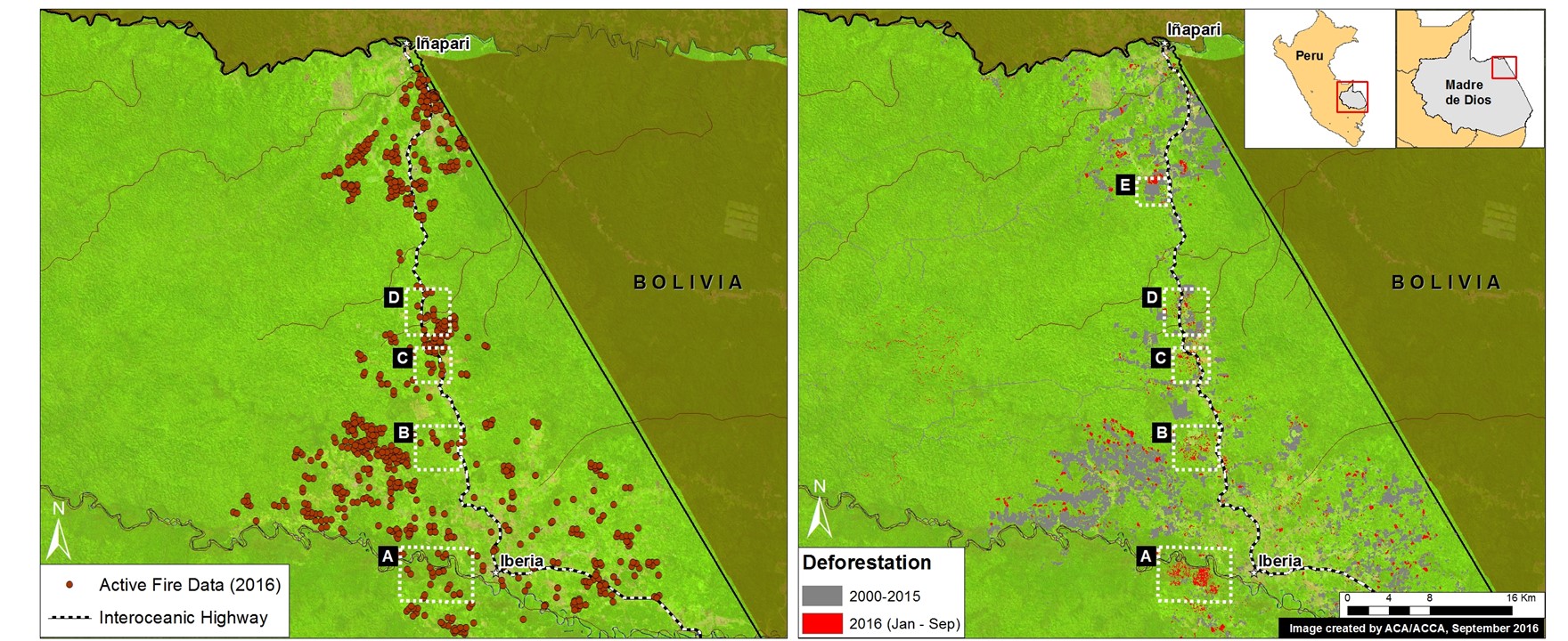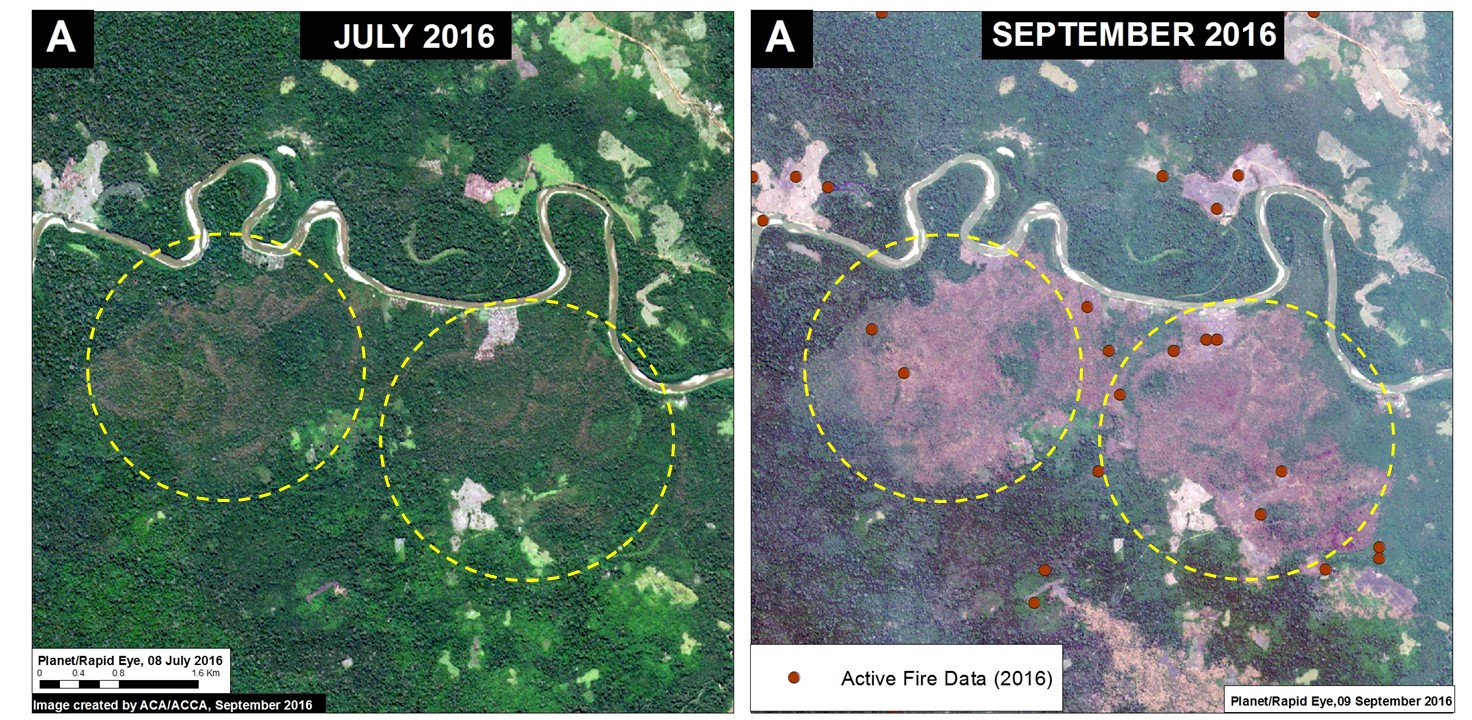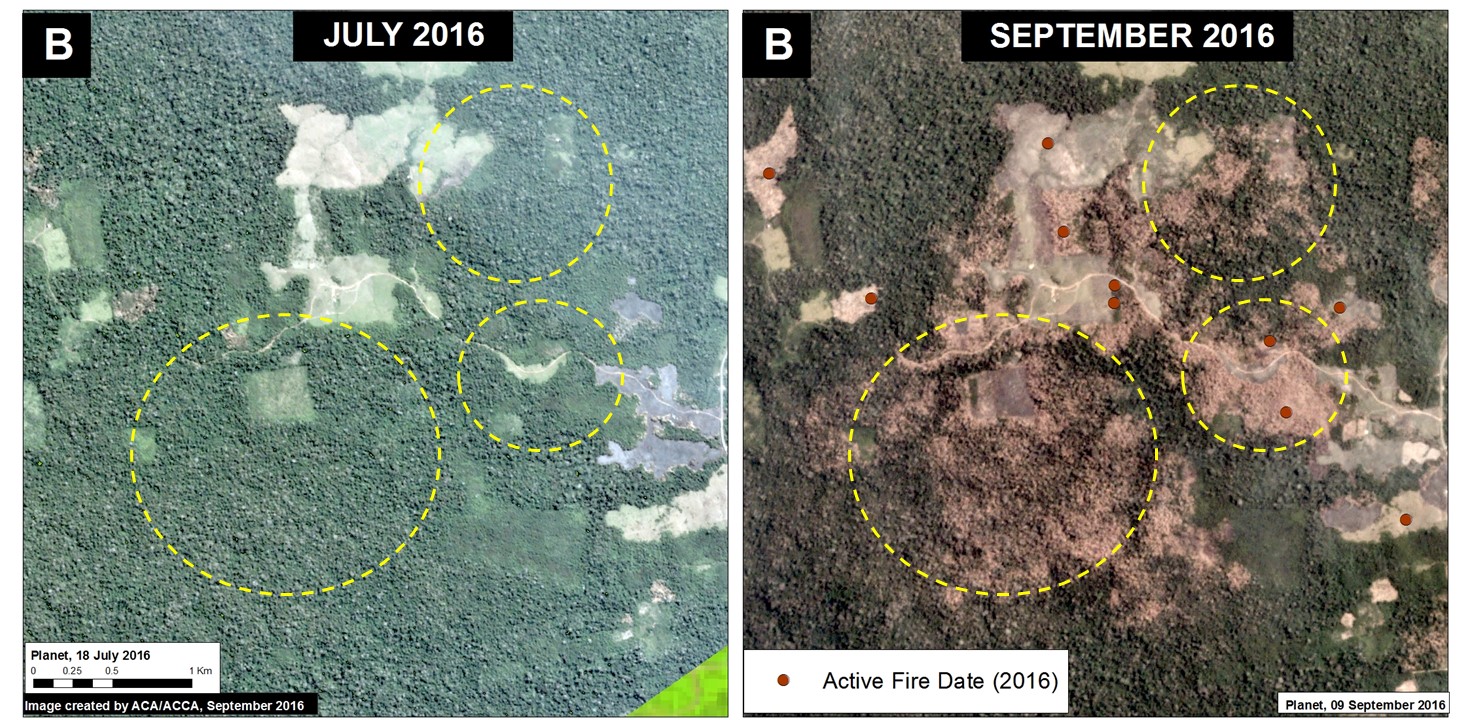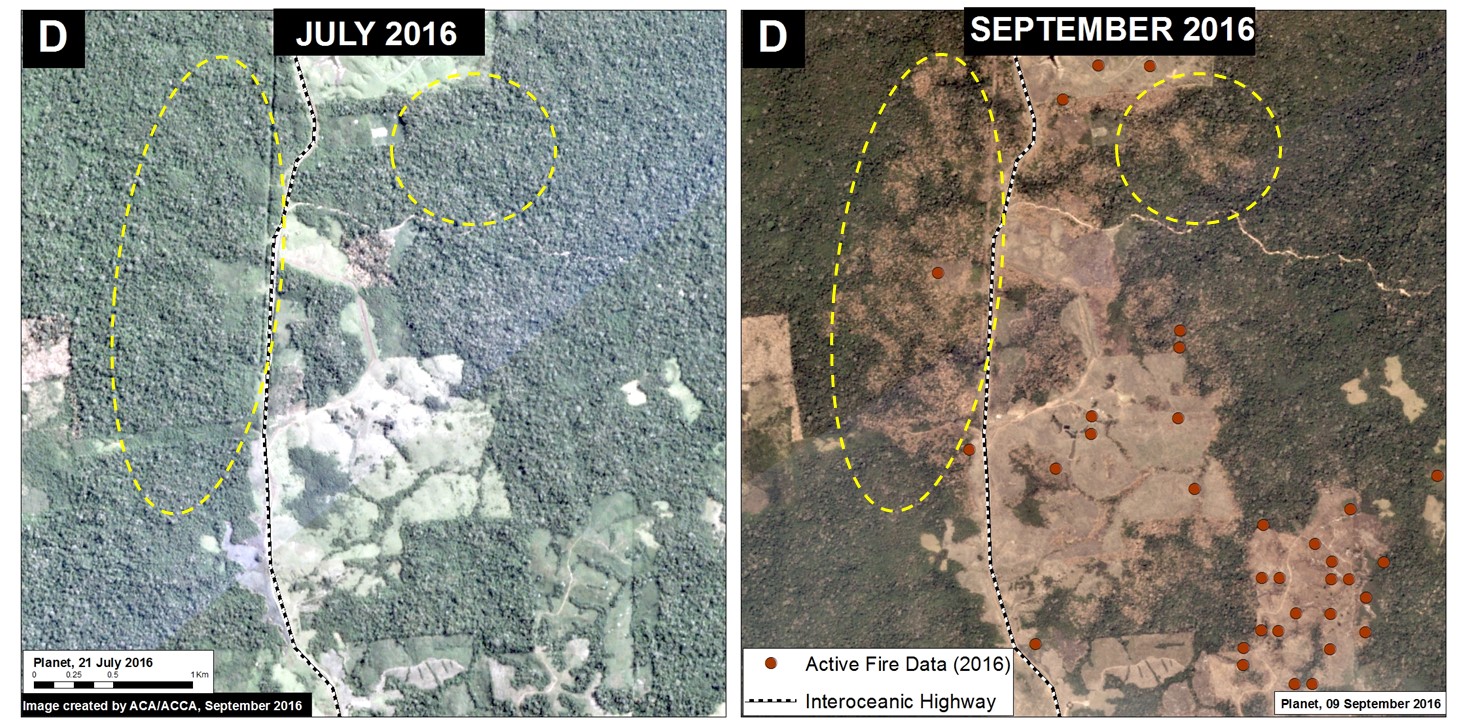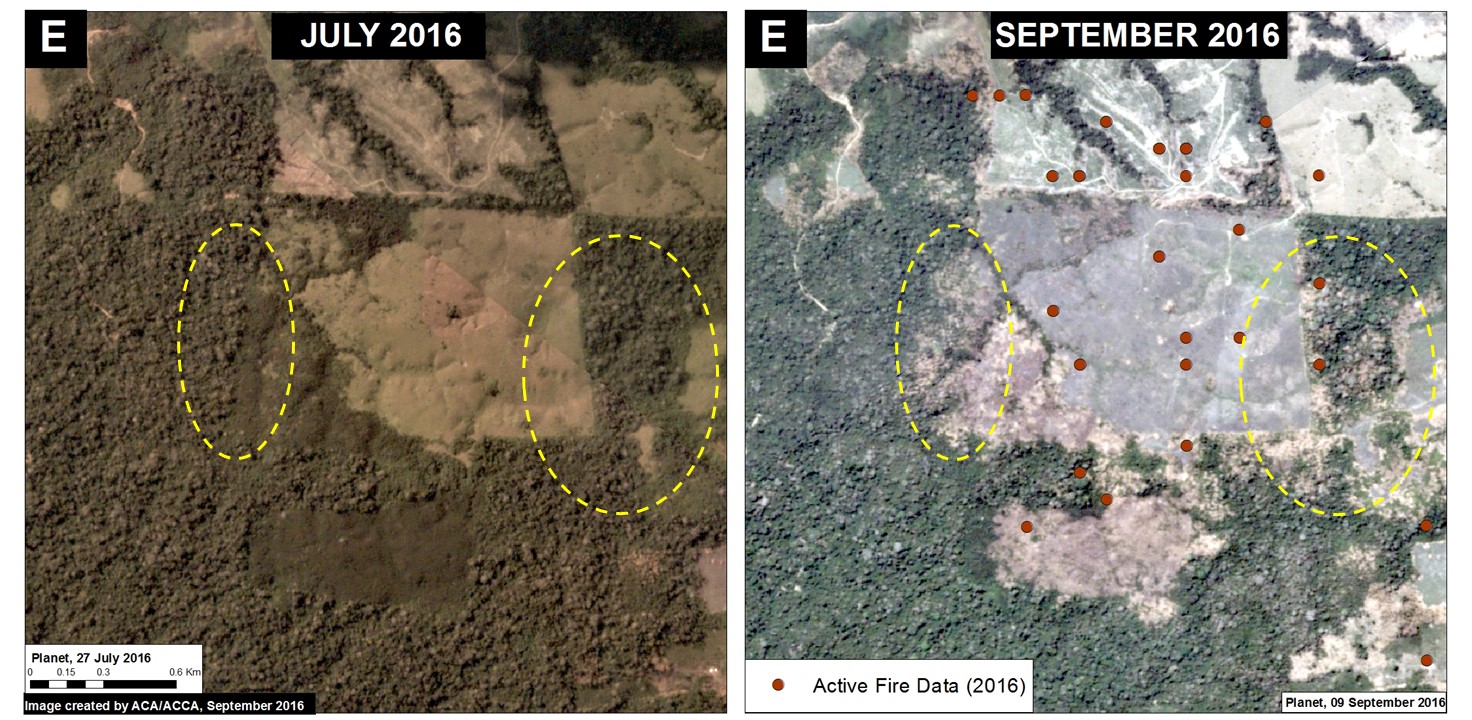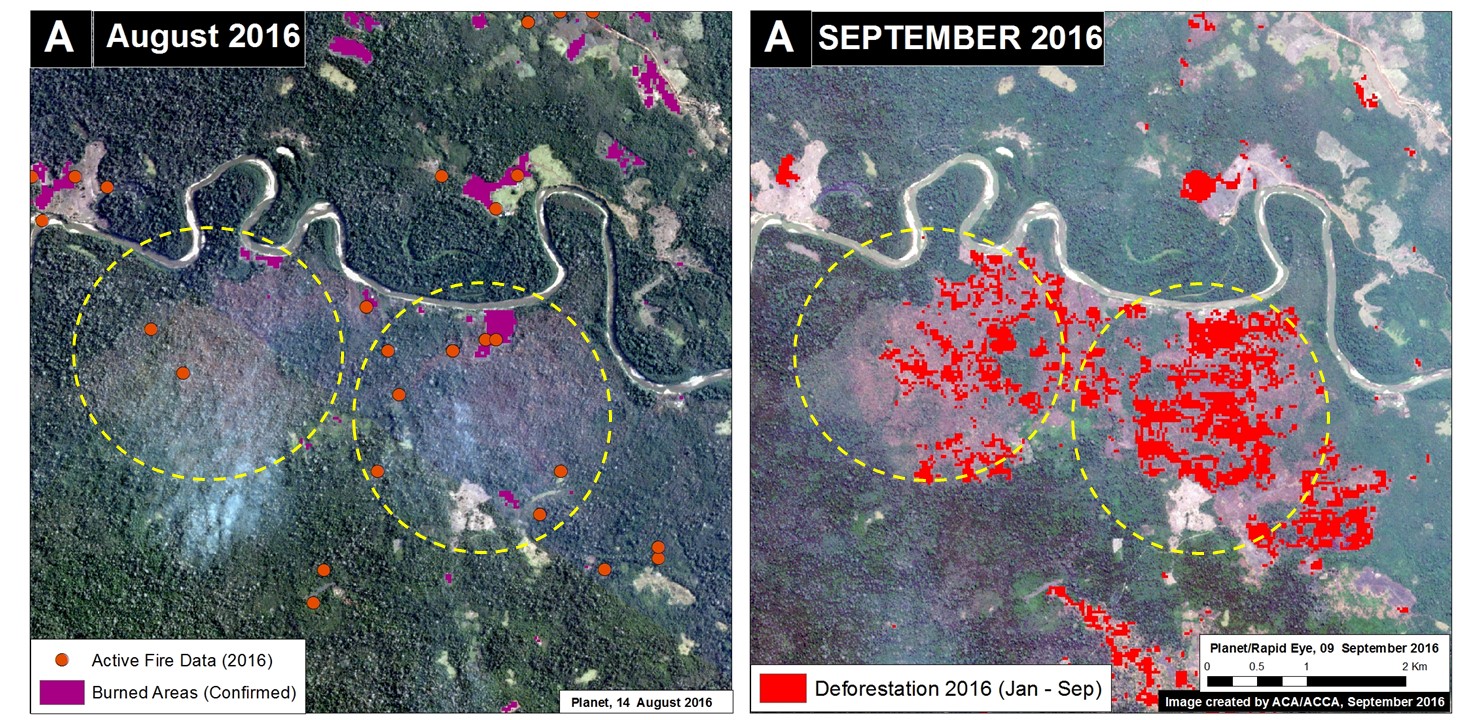The Peruvian Amazon is experiencing an intense 2016 fire season due to one of its driest periods in decades. In recent weeks, we have presented a series of articles showing the power of the new GLAD alerts in detecting deforestation in near real time. Here, we go a step further and also evaluate alerts to detect fires in near real time. These fire alerts are based on the moderate resolution (375 meters) VIIRS sensor that detects heat sources and highlights areas where the temperature is significantly above normal.
We compared, for the first time, these two types of alerts and found a correlation between fires and forest loss along a stretch of the Interoceanic Highway in the southern Peruvian Amazon (Madre de Dios region).
Image 47a shows the occurrence of fire alerts (left panel) in relation to deforestation alerts (right panel) during 2016 along the highway between the towns of Iberia and Iñapari. Insets A-E indicate the areas highlighted in the high-resolution zooms below, where approximately 600 hectares were affected by fires in 2016..
Zooms A – E
Images 47b-f show the forest loss/degradation between July (left panel) and September (right panel) of 2016 in the areas indicated by Insets A-E. Yellow circles indicate areas with the most forest loss/degradation between these dates. Brown dots indicate the fire alerts. Note that the forest loss/degradation is often adjacent to recently burned pasture and agricultural areas.
Confirmation of the relation between Fires and Deforestation
Image 47g shows a detailed example of the relationship between fire and deforestation alerts. The left panel shows both the fire hot spots (brown spots) and confirmed burned areas (purple). Also note the forest fire smoke. The confirmation of the burned areas was achieved through the Normalized Burn Ratio index. The right panel displays the subsequent GLAD forest loss alerts in red.
Citation
Novoa S, Finer M, Mendoza E (2016) Fires Degrade Southern Peruvian Amazon (Madre De Dios). MAAP: 47.
